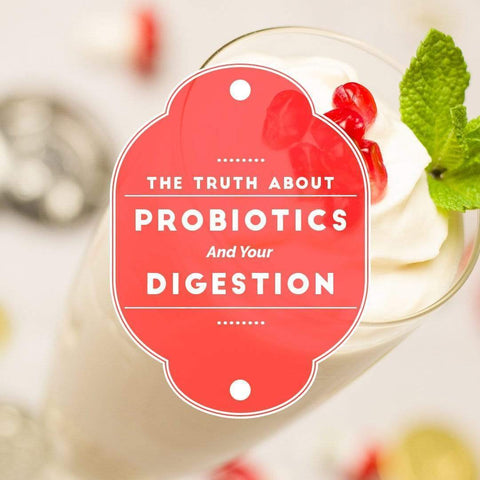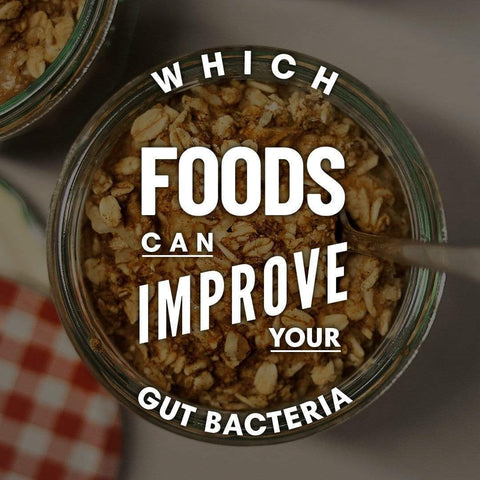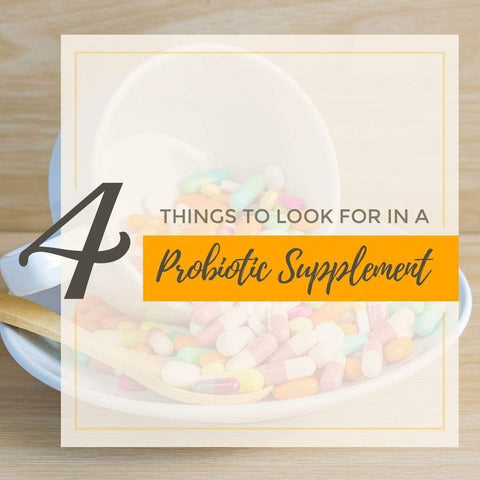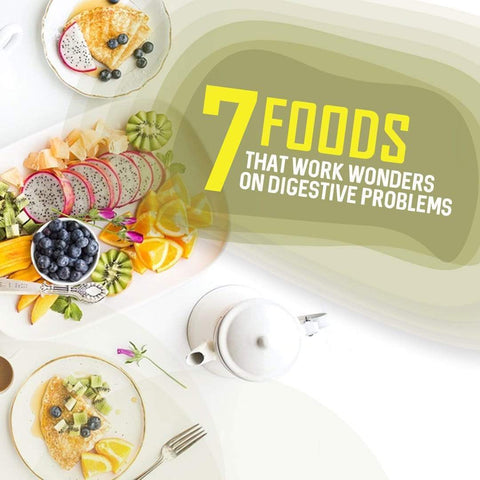
Your gut needs probiotics.
The microbiome of bacteria in your intestines is extremely crucial to your health. In fact, you wouldn’t be alive without these bacteria. This is why they are considered “good” bacteria. They perform an array of roles in your body like boosting your immune system and regulating inflammation.
This might be a startling fact, but your guts have more bacteria than all the other cells in your body. In a way, you are more microbe than you are human.
So it follows that bacteria play a very important role in your body. Indeed, research has extensively shown that good gut bacteria (probiotics) affect the body in number of different ways.
Key Point
The bacteria in your gut affect nearly every part of your body: your skin, brain, and immune system,for example. And research has associated lack of good bacteria (and overgrowth of pathogens) in the gut microbiome with many diseases such as inflammatory bowel disease, cardiovascular disease, and asthma. 1.
Do You Need to Supplement?
There are many reasons why you might be deficient in good bacteria. Here are a few possible reasons:
- You have taken antibiotics in the past.
- You eat a standard low-fiber Western diet.
- You were not breastfed.
- You eat lots of non-organic, conventionally farmed food.
- You take various medications.
- You experience regular stress.
- You get little exercise.
- You are overweight.
Do any of these reasons apply to you? If so, you could benefit from probiotic supplementation.
Exclusive Bonus! Download the FREE report ‘32 Top Ways To Boost Digestive Health’ by clicking here.
The Role of Probiotics in Your Body

Probiotics play a crucial role in EVERYONE'S health. They support all phases of digestion, including the absorption of nutrients and the elimination of toxic compounds from the digestive tract.
For example, probiotics can inhibit the absorption of heavy metals, protect intestinal tissue from damage, and improve the elimination of heavy metals 3. And gut bacteria play a crucial role in the absorption of nutrients like vitamins and minerals. Some B vitamins are utilized because of the presence of probiotics 4. These good bacteria are vital if you want adequate nutrition. You can't digest properly without them!
Probiotics also stabilize and soothe intestinal tissue and mucus membranes so that the intestines can absorb nutrients effectively and don't leak harmful compounds into your bloodstream 5.
Probiotics have influence beyond the gastrointestinal tract. They have a positive effect on your whole body. Excessive inflammation is involved in nearly every health problem. And guess what can help quell inflammation? Probiotics! The administration of good bacteria can calm down allergic reactions, food intolerances, and overactive immune cells 6.
Probiotics can also diminish a person’s risk for cardiovascular disease by lowering cholesterol and inflammation 7. The brain can also be affected by the microbes in your gut. Cognitive improvements have been seen in Alzheimer’s patients after supplementation with probiotics 30. Good bacteria can produce neurotransmitters like serotonin, and research reviews have found that probiotics can significantly improve mood 31.
Supplementing with the Right Type of Probiotic
Many people have lifestyle habits or circumstances that reduce the count of good bacteria in their guts. Luckily, supplementing with the RIGHT sort of probiotic can replenish your gut with the bacteria that you need.
A probiotic will actually make a difference in your gut health because it’s able to make it alive into your intestines.
And to make it into your intestines, the probiotics have to survive your stomach acid. Since this acid is capable of killing bacteria that you ingest, it’s possible that it could do damage to some types of good bacteria as well.
Although portions of some strains of probiotics can survive stomach acid, the most effective way to supplement and get benefits from all strains of probiotics is to have a formula of microbes that is protected against degradation by stomach acid and is delivered intact into the intestines.
Researchers state, “Probiotics must survive in the acidic gastric environment if they are to reach the small intestine and colonize the host, thereby imparting their benefits” 2. Probiotics have to make it past the gauntlet of your stomach acids to benefit you.
Is there any value in supplementing with probiotics that are unprotected from stomach acid?
Although portions of some strains of probiotics can survive stomach acid, the most effective way to supplement and get benefits from all strains of probiotics is to have a formula of microbes that is protected against degradation by stomach acid and is delivered intact into the intestines.
This is why it is best to take specially-encapsulated probiotics so that there is no chance of this good bacteria losing their therapeutic value.
MAKTrek (Bi-Pass Technology)
One type of probiotic encapsulation that ferries probiotics safely past stomach acid is the MAKTrek encapsulation system. In this formula,probiotics are mixed into a brown seaweed extract and then encapsulated.
Once the capsule comes into contact with stomach acid, it dissolves, but the seaweed protects the living probiotics in this acidic environment. Having survived the stomach, these probiotics can be safely delivered into the intestines.
Many probiotics simply have a vegetable gelatin capsule that dissolves when exposed to stomach acid, leaving the probiotics exposed to the killing power of acid. With MAKTrek delivery, the probiotics you take will survive and make it to where they need to go.
Dual Encapsulation
Another method of delivering probiotics to your intestines intact is by putting two capsules around a probiotic blend. This way, the first capsule dissolves after your stomach acid hits it, but there is still one capsule remaining that ferries the probiotics into your intestines.
Any formulation that protects probiotics from stomach acid will be useful in maximizing the therapeutic value of probiotics.
Take the Right Strains

There is a variety of probiotics out there, and so it’s very important to take the most therapeutic strains of probiotics.
Lactobacillus is an important strain of probiotic because it effectively survives transport into the intestines and is a very durable strain of bacteria 2. Researchers also put emphasis on the specific strain, lactobacillus acidophilus, because it is widely known to be therapeutic 8. Lactobacillus acidophilus has been shown to enhance the immune system9.
Lactobacillus plantarum, another strain of lactobacillus, is especially helpful at soothing the intestines and benefitting people with irritable bowel syndrome 10,11. There is evidence that this bacteria family could help with anxiety and reduce the chance of cardiovascular disease 12,13.
Lactobacillus paracasei is another form of this effective lactobacillus strain, and evidence suggests it might have anti-allergy effects, health-promoting effects on skin, and antibacterial effects 14,15,16,17.
Bifidobacterium lactis is another strain of probiotic that has been extensively studied, and one scientific review concludes that this strain is “documented” to improve immune function 18. This probiotic has also been proven to efficiently colonize in the intestines of humans 19.
It is important to pick strains that have been tested and evidenced to be beneficial to humans.
Are There Other Ways to Get Probiotics?
You can incorporate fermented foods that contain probiotics into your diet to give you health benefits. The advantage of probiotic supplements is that there are specific and potent amounts of bacteria in them with exact numbers of certain strains. And these bacteria can be delivered intact into your intestines. Nonetheless natural probiotic foods are a good option.
1. Sauerkraut

Fermented cabbage is one of the oldest traditional foods found on the planet. In Germany, fermented cabbage takes the form of sauerkraut. This fermented food has many healthy attributes including a flavonoid antioxidant and probiotic content 20.
When you consume the healthy bacteria in sauerkraut, it will add to the health of your microbiota. You will be aiding the colonies of good bacteria in your gut so that you digest food and absorb nutrients.
2. Yogurt or Vegan Yogurt
Traditional yogurt is made by the bacterial fermentation of cow’s or sheep’s milk. Researchers generally agree that yogurt has beneficial effects on the digestive system 22. Yogurt promotes good gut bacteria, improving bowel movements and enhancing the gut’s immune system 22.
3. Tempeh

Tempeh is a nice thick plant-based protein source that is made from fermented soybeans. In a model of the gut ecosystem, tempeh is evidenced to cause a rise in the beneficial Lactobacillus type of bacteria 23.
The soybeans in tempeh have been fermented to get rid of the phytic acid, which is an irritant and inhibits the absorption of nutrients. Because of the fermentation, you get a more nutritious and probiotic-rich food.
Tempeh is also rich in B vitamins and is packed with protein, too..
4. Miso Soup
Miso is a traditional Japanese seasoning made with fermented soybeans. The seasoning is usually mixed into a soup.
Miso improves digestion24. Miso soup might have healthy effects on blood pressure, heart rate, and even balancing the nervous system 25.
5. Natto

This is yet another Japanese form of fermented soybean. It is full of the bacillus subtilis probiotic strain that promotes immune and cardiovascular health. All the health benefits of natto are not yet fully known. Recently, it has been shown to improve bone health 26.
Natto reduced bone loss in postmenopausal women in one study 26. Natto appears to improve circulatory health because of its anti-clotting effects 27.
Importantly, natto contains TONS of vitamin K2, which has potent effects on keeping bones strong and keeping calcium in the bones 28. Vitamin K2 also keeps calcium out of blood vessels; calcium is not needed in your arteries and it makes them stiff!
6. Kombucha

Kombucha is widely available in grocery stores. It is a pleasant, lightly sweetened carbonated beverage that is made from tea that is fermented with bacteria and yeast. The probiotics and antioxidant acids formed in kombucha are responsible for its health benefits.
A review of research on the health benefits of kombucha concludes that it promotes health in four ways: “detoxification, antioxidation, energizing potencies, and promotion of depressed immunity” 29. Those are startling benefits. Researchers also note that in addition to the evidence, countless anecdotal stories claim substantial health improvements of kombucha 29.
So there you have it. Now you know the truth about probiotics and how they can help your digestion.
How to improve your digestion?
Are you a suffering from constipation, diarrhea, gas, bloating or have been taking antibiotics?
You may have an overabundance of bad bacteria or fungi in your gut.
Fortunately, you can fight back with good, healthy bacteria!
Click here to get the FREE report by Nutritionist Evan Burns, which reveals 32 digestion boosting foods including bacteria rich, liver detoxing and colon cleansing foods that are safe, natural and highly-effective.









